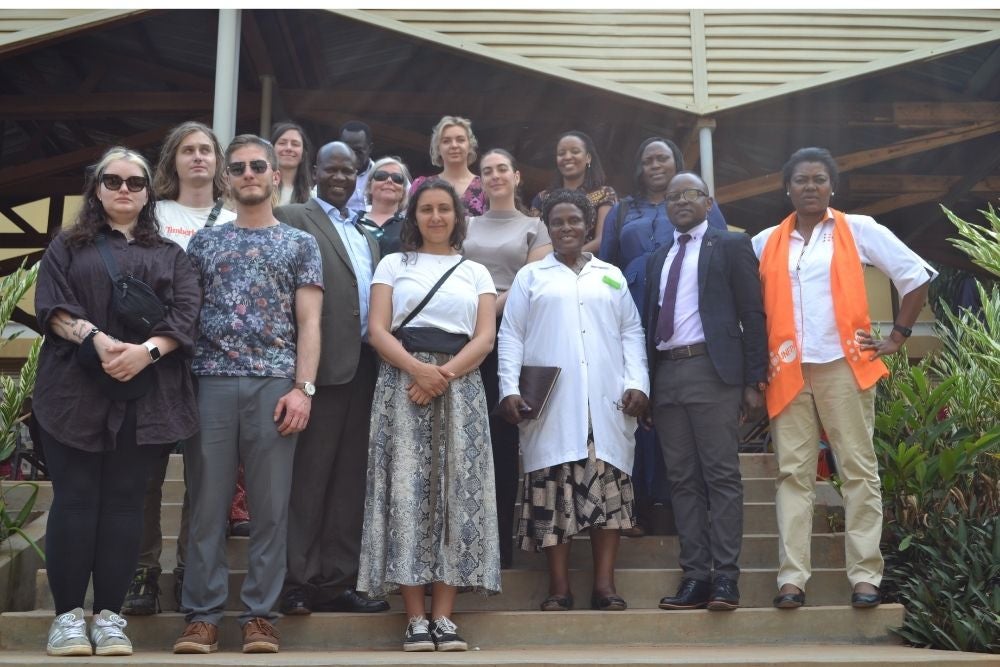Kampala, Uganda – When Irene Namatovu arrived at Kawala Health Centre IV in labour, she didn’t expect her life would hang in the balance. But shortly after giving birth, she began bleeding heavily, one of the most dangerous complications after childbirth.
“I was told I had a tear and was bleeding heavily,” Irene says. “Even after the first medicine, I was still bleeding. The midwife quickly called for support and they gave me more treatment. They didn’t give up on me.”
Irene’s success story is one of survival, made possible through the SafeBirth Africa (SBA) Project, a partnership between UNFPA, Unitaid and the European Union that focuses on preventing postpartum hemorrhage (PPH), the leading cause of maternal deaths in Uganda.
Launched in Uganda in July 2023, the project helps health workers detect and manage PPH more effectively. Each year, thousands of women in Uganda die from PPH deaths that are largely preventable with timely intervention and skilled care.
Christine, a senior midwife at Kawala Health Centre IV, helped Irene during delivery. “Before, we mostly used oxytocin and misoprostol,” Christine says. “But now we’ve been trained to recognize the signs early and treat birth injuries like tears right away. That’s helped us save more mothers.”
Thirteen health workers at the facility have been trained in using the E-MOTIVE bundle, which includes tools, medications and protocols to help reduce severe bleeding quickly and safely.
“Before the training, we would see several serious cases of PPH each month,” Christine explains. “Now we get maybe one or two, which is a big improvement.”
Kawala Health Centre IV is one of the busiest maternity units under the Kampala Capital City Authority. It handles over 700 deliveries every month and sees around 200 women daily for antenatal care. With this high demand, equipping health workers with the right skills is critical.

The European Parliamentary Forum on Sexual and Reproductive Health and Rights (SRHR) recently visited the facility to see the impact of the SafeBirth project firsthand.
Health workers were also trained on the "60/60 rule"—a method that encourages acting within 60 minutes to reduce bleeding by 60 percent. “We now know how to act fast and save lives,” Christine adds.
Uganda was selected for the SBA project due to its high maternal mortality burden and the urgent need for scalable solutions. By equipping frontline workers with the right tools, training and protocols, the project is helping more mothers survive childbirth.
“I’m alive today because the midwives knew what to do,” Irene says, holding her newborn close. “They saved me and now I get to be with my baby.”
Thanks to continued support from the European Union and UNFPA, more women across Uganda are being given the chance not only to give life—but to live it fully.
- Written by Emmanet Nabwire


